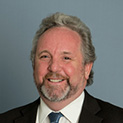The University’s research trajectory has reached a new peak, with six academics being ranked within the world’s top one per cent.
The leading indicator of the world’s best researchers, the Clarivate Analytics “Highly Cited Researchers” list has included five Deakin University health researchers and an economist in 2017.
The researchers are within a select group of 127 Australians, including three Australian business school academics, and just over 3,500 academics worldwide, measured by citations during an 11-year period within 21 disciplines. The list is produced annually by Clarivate Analytics (formerly Thomson Reuters) and featured five Deakin researchers in 2015 – the first time Deakin researchers were included.
Researchers from Deakin’s Faculty of Health are: Alfred Deakin Professor Kylie Ball (IPAN, Social Sciences, general); Alfred Deakin Professor Michael Berk (IMPACT, Psychiatry/Psychology); Alfred Deakin Professor David Crawford (IPAN, Social Sciences, general); Professor Wei Duan (Pharmacology and Toxicology); and Alfred Deakin Professor Jo Salmon (IPAN, Social Sciences, general).
From the Faculty of Business and Law, Alfred Deakin Professor Paresh Narayan (Economics and Business) has been included for the first time.
“These world-class researchers are having a tremendous influence in their fields,” said Deakin’s Deputy Vice-Chancellor Research Professor Peter Hodgson.
[testimonial_text]Citation rates act as a measure of the esteem in which these influential researchers are held by their peers.[/testimonial_text]
[testimonial_picture name=”Professor Peter Hodgson” details=”Deputy Vice-Chancellor Research”]
 [/testimonial_picture]
[/testimonial_picture]“It is a stunning endorsement of the quality of research training at this University that two of these researchers completed their early career research training here. Professor Salmon completed her PhD at Deakin and Professor Ball joined us as a Postdoctoral Fellow.
“I am also delighted that health is so strongly represented. At a time when populations are facing challenges concerning physical inactivity and poor nutrition, as well as increasing numbers of people with chronic disease and mental health issues, it is very rewarding to know that Deakin researchers are making a difference across the globe.”
Co-Director of the Institute for Physical Activity and Nutrition (IPAN), Alfred Deakin Professor David Crawford, noted that the listing was a fantastic outcome for IPAN, particularly as the three “Highly Cited” IPAN researchers represented most of the original team, who established Deakin’s physical activity and nutrition research program around 14 years ago.
“For three of us to receive this recognition three times is fantastic,” Professor Crawford said.
[testimonial_text]The support of Deakin over the years, through our transition to a Strategic Research Centre eight years ago and then a full-blown Research Institute just over a year ago has seen our team grow to over 60 researchers, who are influencing policy, practice, nutrition and physical activity research globally.[/testimonial_text]
[testimonial_picture name=”Alfred Deakin Professor” details=”David Crawford”]
 [/testimonial_picture]
[/testimonial_picture]The listing also marks an outstanding year for Alfred Deakin Professor Michael Berk, who was named the most highly cited neuroscientist in Australia in September. The Director of Deakin’s IMPACT Strategic Research Centre and Alfred Deakin Chair of Psychiatry, Professor Berk has published over 800 papers, predominantly on mood disorders. His major research interests have centred on the discovery and implementation of novel therapies for people with psychiatric disorders. His team is also looking at the risk factors and prevention of psychiatric disorders.
Professor Berk was lead investigator on a study earlier this year that showed lithium may be more effective than newer drugs at protecting the brain after a first episode of bipolar disorder. His team also led a world-first clinical trial of a new treatment for bipolar disorder that approaches the disease as a disorder of energy, rather than as solely caused by problems with neurotransmitters, or chemical messengers, in the brain.
2017 newcomers to the list are biomedical researcher Professor Wei Duan and economist Alfred Deakin Professor Paresh Narayan.
Professor Duan is the Theme Leader of Cancer Research at the Centre for Molecular and Medical Research (C-MMR) and School of Medicine. He has been working on novel strategies of drug delivery using nanoparticles guided by chemical antibodies (nucleic acid aptamers). His laboratory has filed world-first patents for chemical antibodies against the root of cancer (cancer stem cells).
Recently, Professor Duan has secured long-term research and development investment into Deakin with a Chinese biotech company Suzhou GenePharma, announced in September, 2017. This project aims at developing novel diagnostic methods for precision medicine. Known as “liquid biopsy,” it involves using a small amount of blood to detect materials shed by cancer cells. It offers hope for early detection of cancer, which would improve survival rates and quality of life for cancer patients.
Alfred Deakin Professor Paresh Narayan became Deakin’s youngest (at the age of 30) Professor of Finance in 2007 and, in 2012, the first Alfred Deakin Professor in Deakin’s Faculty of Business and Law – the youngest recipient of this honour, at the age of 35.
He established Australia’s first Financial Econometrics Research Group at Deakin in 2011 and was later Director of Deakin’s Centre for Financial Econometrics. His research spans both the fields of finance and the emerging discipline of applied financial econometrics. Over the past decade, he and his team have developed several new models and revised existing approaches towards testing financial market performance that have implications for motivating new research public policy in general. He has given 12 keynote addresses on these subjects in the past two years. He was also “Runner up” in the Scopus Researcher of the Year awards 2017 from Elsevier.
Main photograph (top from left) Alfred Deakin Professor Kylie Ball, Alfred Deakin Professor David Crawford and Alfred Deakin Professor Jo Salmon (bottom from left) Alfred Deakin Professor Michael Berk, Alfred Deakin Professor Paresh Narayan and Professor Wei Duan.
Published by Deakin Research on 20 November 2017



